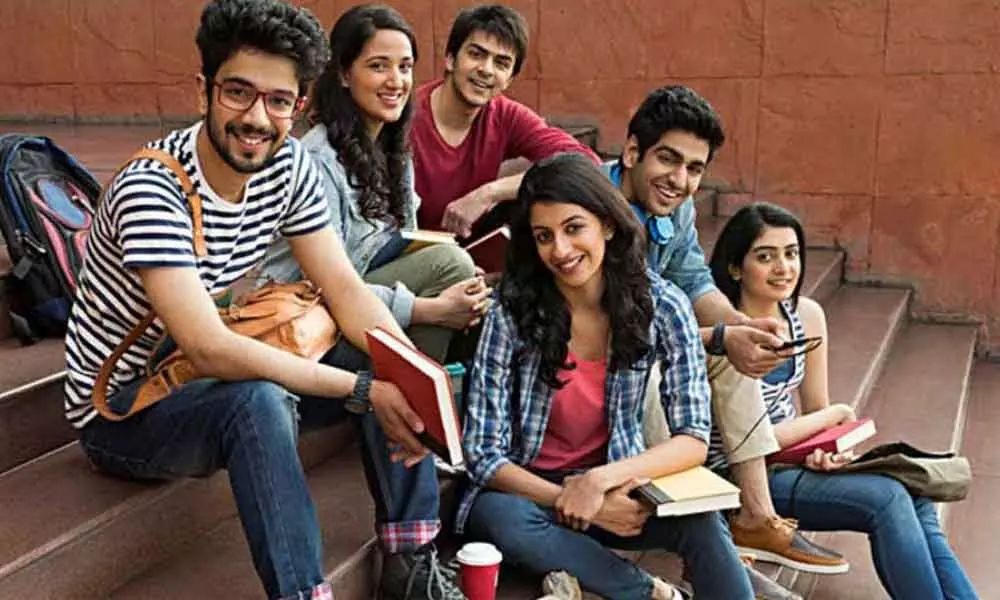Indian students in Australia may return

International students are referred to as ‘cash cows’ in Australia.
International students are referred to as 'cash cows' in Australia. They account roughly over 25% of the students on Australian University campuses.
No one denies that these attractive species net A$39 billion dollars to fatten up the Australian universities. Queensland from where I write this column receives students from China, India, Brazil, South Korea and Taiwan.
In more recent times, higher education visa grants for Indian students rose to 42% in 2017-2018 and a further 35% in 2018-2019. In the year 2018, 38.3 per cent (152,591) students came from China, and 18.0 per cent (71,857) were from India, with the third nationality being Nepal, followed by other Asian countries.
The current pandemic of Covid-19 has affected students who have come from many States of India. We don't know if many have ventured to return to India, when flights were still available in the recent past.
India has banned passenger flights until midnight of April 14, 2020 and it is quite possible that this ban will be extended further. But of course, over 200 people have already requested the Indian government to return them home in the last week of March 2020.
Student visas allow them to work 20 hours per week to earn some money, but those opportunities in many cases have dropped down due to the pandemic, associated social distancing and near lockdown of many small businesses- a haven for student employment.
A couple of weeks ago the Morrison government made causal workers eligible for a payment of about $280 a week if they could not go to work or had to self-isolate because of coronavirus.
But such amnesties aren't available to international students, particularly those who drive Uber or Ola to support or work in cleaning industry and in small retails that may have shut.
Students in many regional universities that descended early in year are the worst hit. Students with spouses that are entitled to work for forty hours face further dilemma. Even home cleaning jobs are not available.
In response to several of these legitimate issues Australia's international education lobbyists began impressing the government and have written to the Prime Minister Scott Morrison.
They felt asking students facing financial difficulties to make an informed decision to leave the country is rather unfair.
However, the government has kept its doors open for an engagement with international education sector some universities are providing marginal relief to students in difficult circumstances.
There is no denying that international students have been responded to in some universities, the pattern has not been uniform. Australian universities admit high caliber students from India into post graduate studies and in fact most of them arrive here with a post graduate qualification and undertake yet another to gain local familiarity.
They choose vocations that Australia needs and persevere to make themselves job ready in a couple of years. Even in those two years or less of their time in Australia they pay for everything to sustain themselves.
It is disheartening the way the Australian universities are playing their cards right now, this despite their professed public service mission.
A lack of concerted response from the Australian universities as a whole and their expectation that Mr Morrison government will fix things for everyone is appalling and over placed.
During social distancing and anticipated further lockdowns a grim picture awaits everyone. Several students are being cared for by the community.
Gurdwaras, Indian restaurants and Indian communities are moving groceries into students' homes. The High Commissioner of India Gitesh Sarma praises the Indian diaspora for its support to the student communities.
Sarma mentioned that the High Commission staff are aware of the desire of some of the students who wish to return to India and that both Australia and India are keen to resume the civil and commercial aviation links as soon as possible.
His Excellency said that 'both Prime Ministers of Australia and India are aware of the situation and have spoken to each other and have promised to undertake all measures in the best interests of both the nations'.
Isolation, inability to move out, lack of transport and reticence to ask and receive primary legitimate services from the university's students support officers seems to characterise the predicament of Indian students.
Anxiety, and depression have surfaced and are being supported by telephone conversations from volunteering Indian diaspora. They need more.








